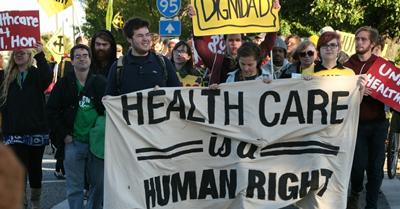Wellbeing and Care
The work of this theme focuses on cultures, spaces and practices of care.
The work of this theme focuses on cultures, spaces and practices of care.

Within the PheW research group are a group of scholars including Andrew Power, Nathaniel Lewis, Emma Roe, Diana Smith, Graham Moon, Julie Vullnetari and Eleanor Wilkinson that advance understanding of wellbeing and care within contemporary and historic landscapes.
Power, Smith, Roe and Moon examine the role of the statutory and voluntary sector in delivering health and social care to various different populations, including LGBTQ people, disabled people and people in financially vulnerable positions who may require support to live in the community. This work analyses the spatialities of service provision in various landscapes such as the inner-city, including foodbanks, day care centres, general medical practice, and drop in clinics. This work examines the interplay of mobilities and service consumption, and the interface between family caregiving, the community and voluntary sector and the state across different cultural contexts. It critically examines the notion of ‘care’ itself, in particular its associations with paternalism, dependency, and the objectification of those who receive support and explores how it sits with other forms of achieving social justice such as rights and equality.
The work of Power, Lewis and Roe explores the bodily, emotional and cognitive dynamics of caring in various care-work spaces. Work in this vein seeks to understand care in relation to public and expert discourses of what is ‘good care’ across different care cultures. Roe considers this question in relation to laboratory and food animals, whilst Lewis and Power examines focus on migrants and disabled people respectively, seeking to understand how, when and in what form care-responses are initiated, sustained – and reciprocated – by each actor involved; together with how this is managed and disciplined in the various spaces being used and created. Emma Roe’s work includes a more-than-human approach to investigating how the agro-food network configures the health and welfare of human and non-human sentient bodies through the economic, cultural, social and political dynamics embedded across food production, retailing, provisioning and consuming. Her AHRC Man Food (2017-18) and AHRC Protein Pressure (2016) projects develop this interest in relation to meat, masculinities and environmentalism. Her ESRC project on AMR in Food retail supply chains (2017-18) engages with key stakeholder governance of challenges raised by antimicrobial resistance. Emma also studies the contemporary biomedical research industry’s breeding, making, rehoming and biobanking practices as they apply to ethical efforts to balance the implementation of the 3Rs (to reduce, to refine, to replace) against the scientific demand for animal models in laboratory animal research (Wellcome Collaborative award 2017-2022).
Eleanor Wilkinson’s work includes a large-scale, British Academy-funded research project into single-life in contemporary Britain, providing an overview of what it's like to be single in Britain today. The findings are adding an important dimension to understanding the changing patterns of personal life in contemporary society.
Julie Vullnetari’s work on care is situated within a context of transnational migration and cross-border care practices, and has a specific focus on older people who live alone after the emigration of their adult children internally or abroad. Older people’s life is considered from their own perspective, and questions address concerns of poverty and vulnerability in older age, especially in a post-communist context of large-scale out-migration, as well as older people’s agency, and active role both as migrants in their own right, and as care providers. The research further seeks to highlight strategies that transnational families employ to overcome older people’s isolation, and deal with challenges to care across borders.
Graham Moon, in a longstanding collaboration with colleagues in New Zealand, Canada and France, has examined the material, institutional, and bureaucratic legacies of the former caring-spaces of psychiatric asylum. With a focus on material spaces, landscapes and built form rather than people, this work engages with concepts from heritage studies, derelict land conversion and the spectral turn to uncover the nuanced contemporary history of the asylum and the asylum idea, revealing the complex after-life of a much-contested space of care.
We draw on a diverse range of methods including documentary, virtual and visual analysis including photo interpretation, ethnography, interviews, textual analysis, GIS, discourse analysis, and participant observation. We engage with theoretical work from Foucault, Mol, Fraser, Goffman, Nora, Ahmed and others, and situate our research both in the field of Health Geography as well as in fields of Science Studies, Feminist and Queer Theory, Policy Studies, Historical Cultural Geography and Urban Studies. We endeavour to feed our work back to inform policy in such areas as health and social care service delivery, heritage management and workplace support.